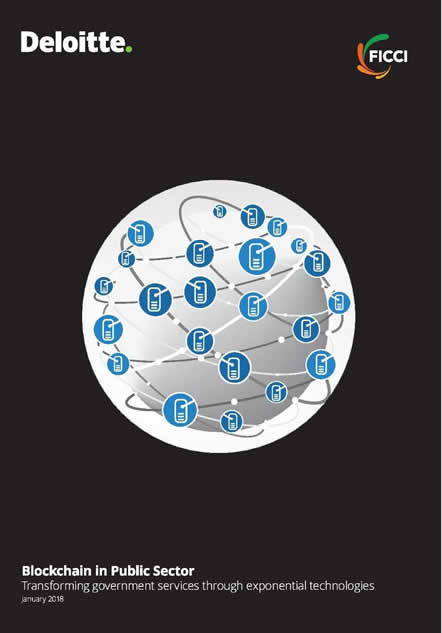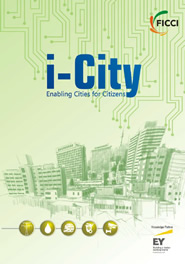The global outsourcing market in India continues to grow at a higher pace compared to the IT-BPM industry. The global IT & ITeS market (excluding hardware sector) reached US$ 1.2 trillion in 2016-17, while the global sourcing market increased by 1.7 times to reach US$ 173-178 billion. India remained the world’s top sourcing destination in 2016-17 with a share of 55 percent. Indian IT & ITeS companies have set up over 1,000 global delivery centres in over 200 cities around the world. This has already led the economic transformation of the country and altered the perception of India in the global economy.
The global outsourcing market in India continues to grow at a higher pace compared to the IT-BPM industry. The global IT & ITeS market (excluding hardware sector) reached US$ 1.2 trillion in 2016-17, while the global sourcing market increased by 1.7 times to reach US$ 173-178 billion. India remained the world’s top sourcing destination in 2016-17 with a share of 55 percent. Indian IT & ITeS companies have set up over 1,000 global delivery centres in over 200 cities around the world. This has already led the economic transformation of the country and altered the perception of India in the global economy. India's cost competitiveness in providing IT services continues to be the mainstay of its Unique Selling Proposition (USP) in the global sourcing market. However, India is also gaining prominence in terms of intellectual capital with several global IT firms setting up their innovation centres in India. The IT industry has also created significant demand in the Indian education sector, especially for engineering and computer science. The Indian IT and ITeS industry is divided into four major segments - IT services, Business Process Management (BPM), software products and engineering services, and hardware.
FICCI's Engagement
FICCI's ICT Committee has been working extensively towards the growth and acceleration of the sector through new business models, global delivery, partnerships and transformative focus in India. In the process, we have established ourselves as an eminent platform for the Indian IT and ITeS industry and the government to come together for the policy formulation and change. The committee has been working closely with the Ministry of Electronics and Information Technology, Government of India along with all its associated departments and parallel divisions for organizing several important forums concerning current issues in the global as well as domestic information technology market. Focusing on global and domestic aspects of crucial areas like IT adoption across sectors, software engineering and export, M2M, IoT, Blockchain, e-Governance, cloud computing, digital communication and cybersecurity etc., the committee has also been a facilitator of international dialogue on policy issues. The committee also actively participate and provide recommendations and suggestions for the industry and the stakeholders to the government at various forums on a periodic basis. With presence across the globe, FICCI’s ICT and Digital Economy Committee also collaborates with various regions including Russia, US, Europe and China to increase business interaction and jointly tackle the key issues in information technology scenario concerning them, by participating in various bilateral ICT dialogues, global policy forums, and host several outward and inward business delegations.
Team Leader
Sarika Gulyani
DirectorTimeline
Data protection framework to be tabled during the Budget session in the Parliament: Lt Gen (Dr) Rajesh Pant, National Cyber Security Coordinator
5G launch a big step in ease-of-doing-business and ease of living: FICCI
Indian women play huge role in the growth of our economy but their strong impact in technology & defence sector deserves utmost respect: Dr Ajay Kumar, Defence Secretary
Govt to soon launch National Language Technology Mission: Secretary, MeitY
Digital Innovation will transform agriculture: Senior Adviser, NITI Aayog
FICCI-ILIA Webinar on Role of Universal Acceptance in Indic Internet and Language Technology Sector of India
Government working to ensure digital economy contributes $1 trillion to GDP by 2025: MeitY
Webinar on Opportunities for Cooperation in ICT Sector between India and Russia
Govt to soon launch National digital platforms for skills and jobs, healthcare, education: Secretary, MeitY
Digital Bharat 2020 - Digital the New Normal
AI and smart analytics will redefine the future of logistics supply chain
Technology enabling businesses to improve communication with employees: President & CEO, Panasonic
FICCI Webinar on Driving Growth Through Employee Engagement
FICCI-ILIA Technical Workshop on “Universal Acceptance Overview” under UASG local India initiative
Webinar on The importance of Creator Driven Economy
Webinar on Universal Acceptance Awareness
Webinar on AI for Social Good
Webinar on Importance of Language Computing Technologies during Global Health Crisis
Develop IT, e-commerce among SCO member countries: SCO Secretary General Vladimir Norov
Lack of online Indic content a huge opportunity: MeitY Secretary

Roundtable on "Responsible AI and Framework" - a Global Policy Framework and Discussion on Ethical AI Principles

FICCI Call on Meeting with Shri Ajay Prakash Sawhney, Secretary, Ministry of Electronics & Information Technology, Government of India
FICCI-led Indian delegation in Russia to collaborate on ICT emerging technologies
A.I. and other Frontier Technologies to bridge the gap and reduce accessibility issues in the country: Joint Secretary, MeitY
Language localisation being given top priority to bring govt. services closer to the people: Secretary MeitY
National Cyber Security Coordinator cautions against tardy implementation of security measures against cyber crime

FICCI Big Data and Analytics Conclave 2018: Powering Digital Transformation through Analytics Economy
Blockchain technology to yield fruitful results for the common man says UP Finance Minister
Upcoming data protection law will make the country future-ready: Maharashtra IT Secy. at CyberComm 2018
Blockchain Technology can transform e-governance: Devendra Fadnavis
i-Telangana 2017
FICCI Business Delegation to 9th International IT Forum - Khanty-Mansiysk, Russia
i-bharat-2016
Seminar on Powering Digital India with Enterprise Architecture
Digital India is politics neutral, will empower India and Indians: Ravi Shankar Prasad
Government creating enabling policy environment to enhance private sector's participation in 'Digital India' programme
FICCI commends launch of Digital India program by the PM as 'Digital Transformation' for economy
eINDIA 2013
Gartner Business Intelligence & Information Management Summit
Gartner IT Infrastructure Operations & Data Center Summit
National Cyber Security Policy in the offing: IT Secretary
Third Worldwide Cybersecurity Summit
Internet an indispensible tool for governance in a free democracy: Sibal

A Multistakeholder Discussion on India's Position in the UN for Internet Governance(UN-CIRP)
WITFOR 2012
Roundtable on Privacy in the Context of Hyper-Connected World

Industry Forum on "Cybersecurity and Business The Challenges and Opportunities" & Launch of 3rd Worldwide Cybersecurity Summit
Interactive Session with Shri. Nandan Nilekani, Chairman, UIDAI on AADHAAR
Hyderabad IT Summit 2008 - Empowering IT With World Class Infrastructure










































